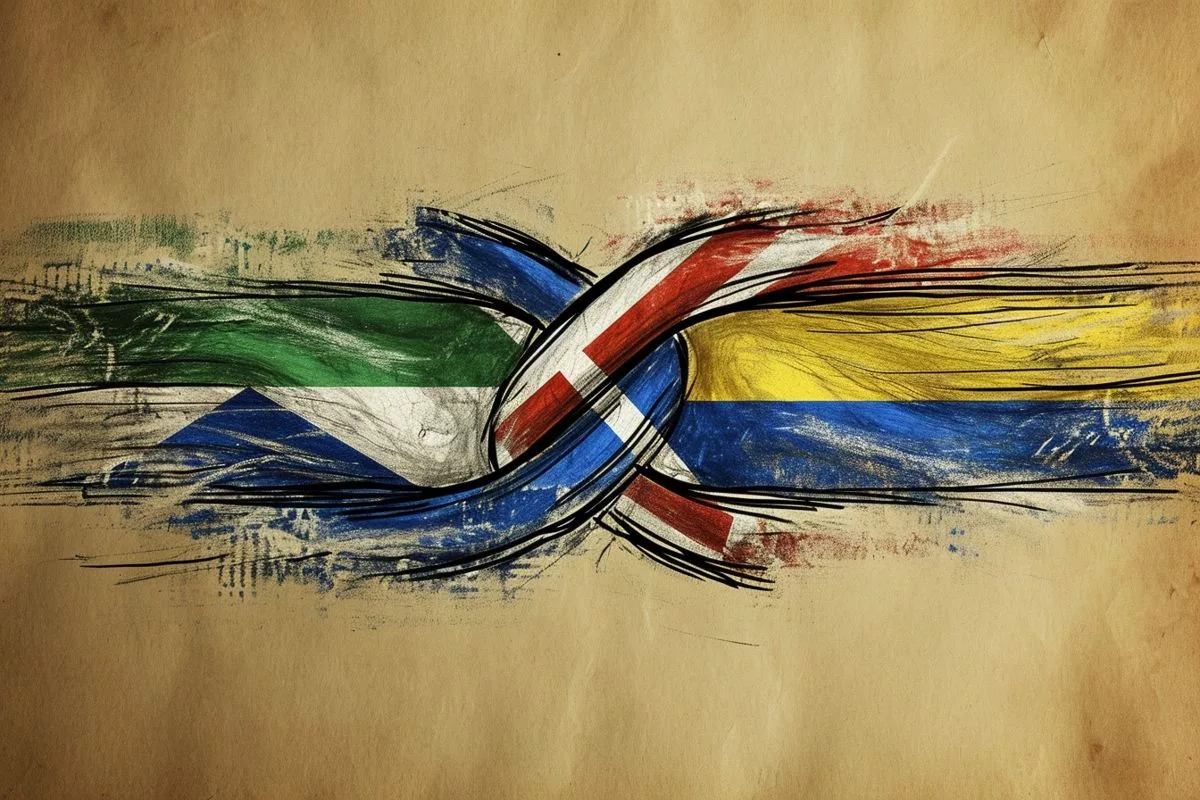South Africa’s international relationships with Cyprus and the EU are crucial for promoting development, stability, and a prosperous future. These bonds go beyond diplomatic ties, fostering collaborations in various areas such as commerce, education, and tourism. Despite domestic challenges, South Africa remains committed to collective action and multilateralism in tackling global issues such as climate change and poverty, demonstrating its global influence and commitment to creating a more equitable and sustainable future.
The importance of leadership, particularly that of South Africa’s President Cyril Ramaphosa, has been a topic of considerable interest lately. While concerns about his health persist, it’s crucial not to overlook South Africa’s significant role in the global community. One critical aspect of this role is its relationships with Cyprus and the broader European Union (EU).
South Africa’s Relationship with Cyprus
South Africa’s connection with Cyprus has strengthened over time, fostered by the Cypriot community residing within the ‘Rainbow Nation.’ This bond goes beyond diplomatic ties, with the High Commission of Cyprus in Pretoria encouraging collaborations across various areas, including commerce, education, and tourism.
South Africa’s Robust Connection with the EU
Similarly, South Africa’s connection with the EU is robust and multifaceted, rooted in the Trade, Development and Cooperation Agreement (TDCA) that has been operational since the new millennium. This agreement promotes trade, fosters educational exchanges, and facilitates political dialogues.
The Efficacy of the TDCA Accord
The TDCA Accord’s efficacy is evident from the EU’s Erasmus+ program and the Horizon 2020 initiative, which offer South African students the opportunity to study in European institutions. These programs contribute substantially to global research and innovation, bringing the world closer in the pursuit of knowledge.
South Africa’s Commitment to Collective Action and Multilateralism
Despite grappling with domestic challenges and leadership narratives, South Africa remains committed to collective action and multilateralism in tackling pressing global issues such as climate change and poverty. This aligns well with the EU’s efforts and values.
The Implications of International Relationships
Although local discussions often center around South Africa’s President’s health and decisions, it’s essential to remember that the country’s international relationships, such as those with Cyprus and the EU, have far-reaching implications. These partnerships contribute significantly to the shared pursuit of development, stability, and a more prosperous future for all citizens worldwide.
South Africa’s Global Influence
South Africa’s engagements with nations like Cyprus and alliances like the EU are a testament to its global influence. These connections demonstrate the country’s commitment to creating a more equitable and sustainable future, proving that despite any internal challenges, South Africa continues to make its mark on the global stage.
In conclusion, these intricate and interconnected international relationships are as crucial a matter of discussion as a nation’s leader’s health status. They remind us of our place in a larger global community and the roles we need to play to move towards a more sustainable and equitable future for all.
1. What is the significance of South Africa’s international relationships with Cyprus and the EU?
South Africa’s international relationships with Cyprus and the EU are crucial for promoting development, stability, and a prosperous future. These bonds go beyond diplomatic ties, fostering collaborations in various areas such as commerce, education, and tourism.
2. What is South Africa’s relationship with Cyprus?
South Africa’s connection with Cyprus has strengthened over time, fostered by the Cypriot community residing within the ‘Rainbow Nation.’ This bond goes beyond diplomatic ties, with the High Commission of Cyprus in Pretoria encouraging collaborations across various areas, including commerce, education, and tourism.
3. What is the TDCA Accord, and how is it beneficial?
The TDCA Accord is an agreement between South Africa and the EU that promotes trade, fosters educational exchanges, and facilitates political dialogues. The efficacy of this accord is evident from the EU’s Erasmus+ program and the Horizon 2020 initiative, which offer South African students the opportunity to study in European institutions, contributing substantially to global research and innovation.
4. How committed is South Africa to collective action and multilateralism?
Despite grappling with domestic challenges and leadership narratives, South Africa remains committed to collective action and multilateralism in tackling pressing global issues such as climate change and poverty. This aligns well with the EU’s efforts and values.
5. What is the significance of South Africa’s global influence?
South Africa’s engagements with nations like Cyprus and alliances like the EU are a testament to its global influence. These connections demonstrate the country’s commitment to creating a more equitable and sustainable future, proving that despite any internal challenges, South Africa continues to make its mark on the global stage.












